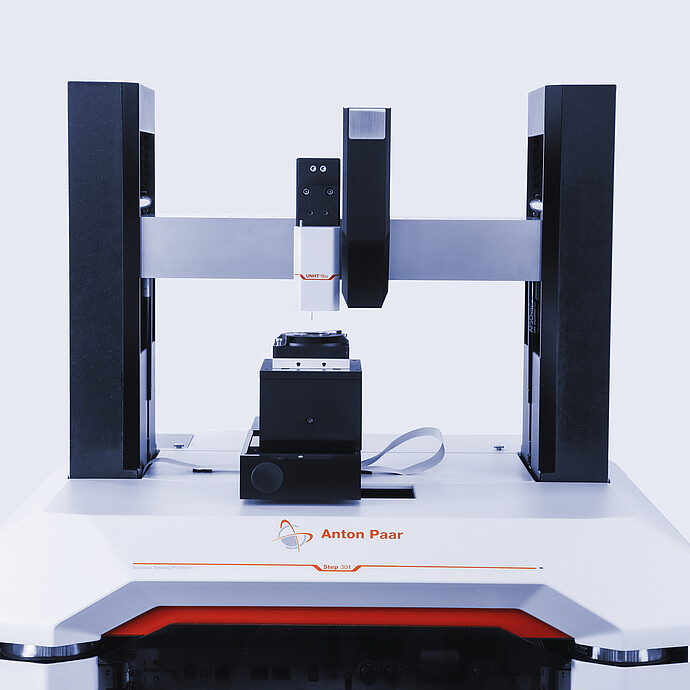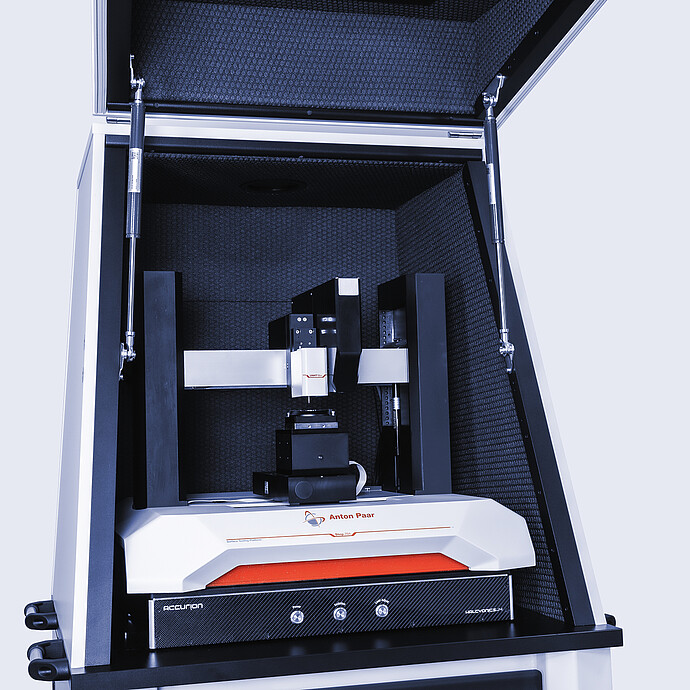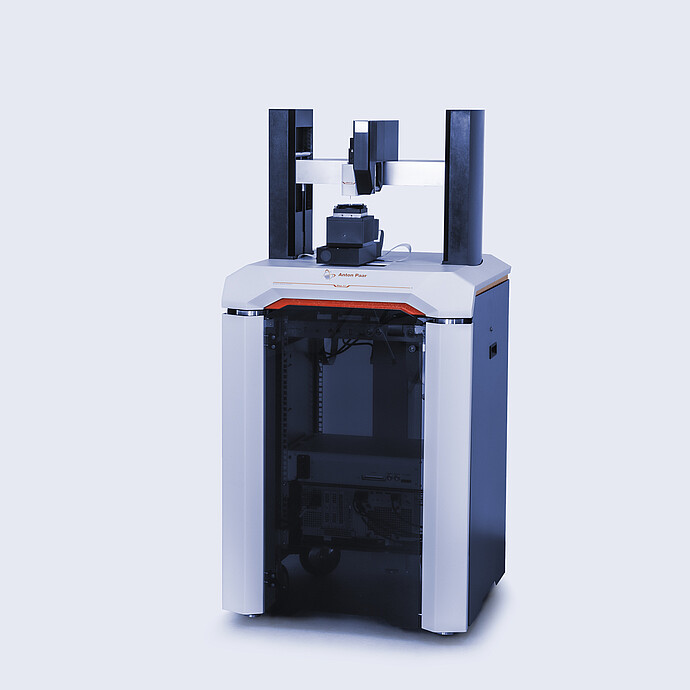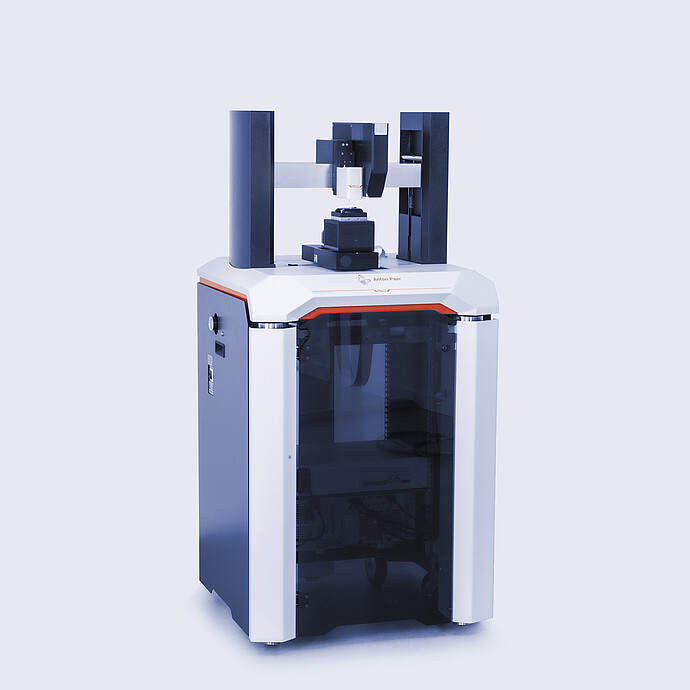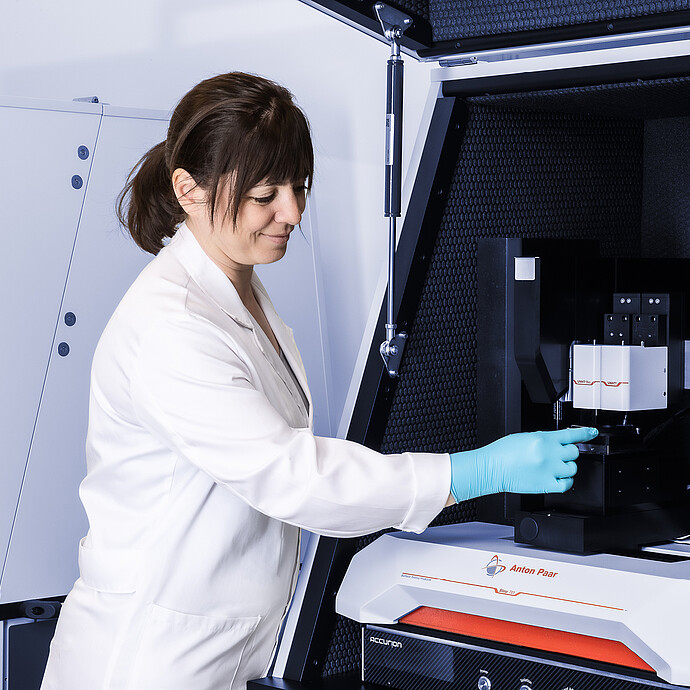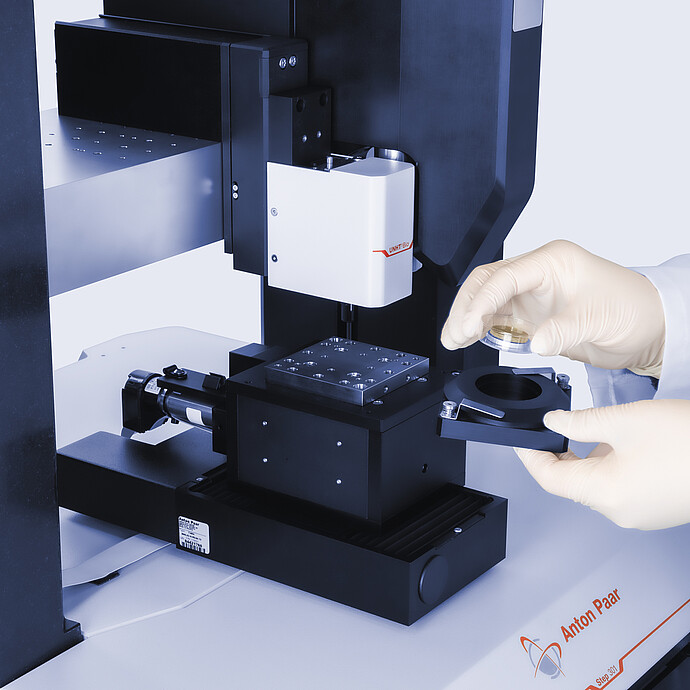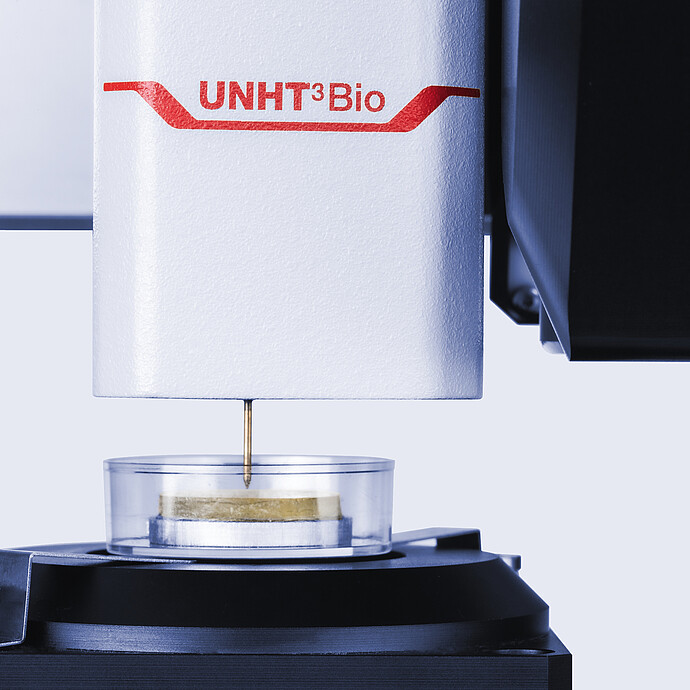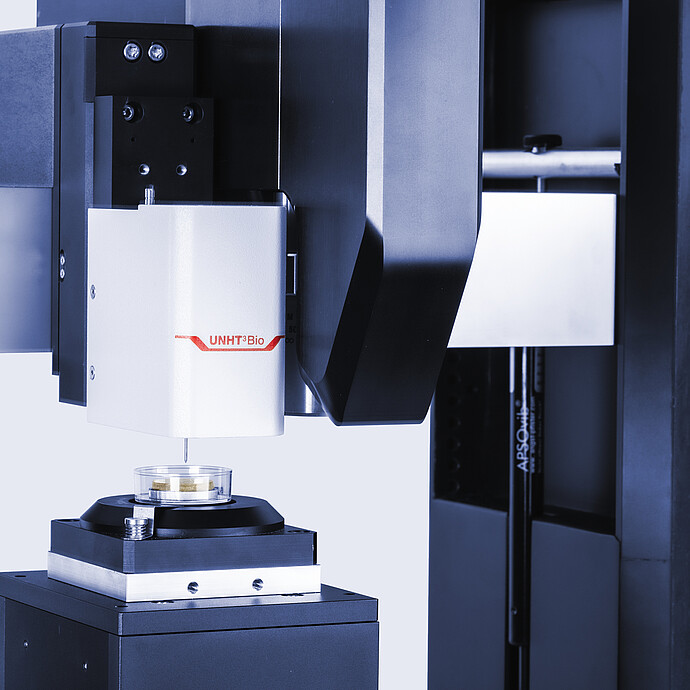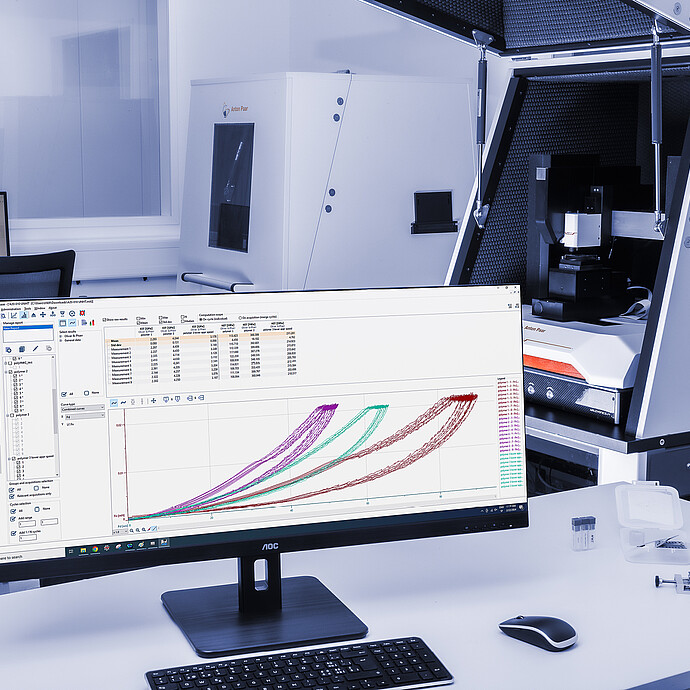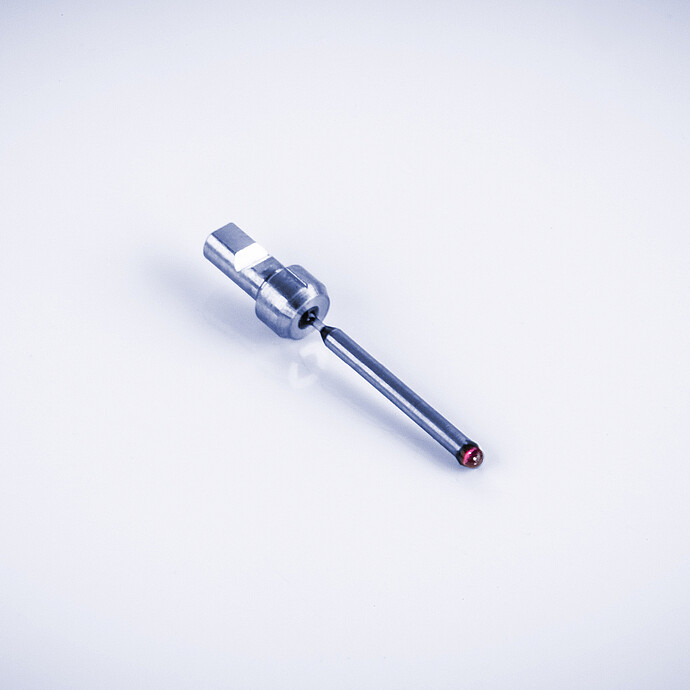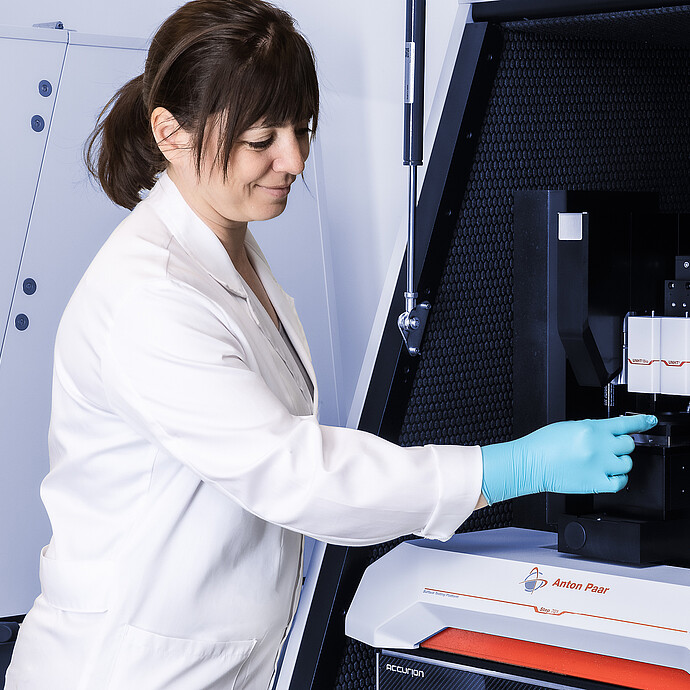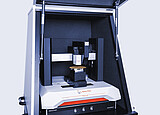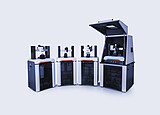Bioindenter:
UNHT³ Bio
- Measurement of soft and biological materials
- Most sensitive characterization of elastic modulus, creep and other properties
- Wide range of indenters available (spherical, flat-punch, Berkovichs, Vickers, cube-corner, custom-made)
The Anton Paar Bioindenter is the ideal nanoindentation tester for characterizing the mechanical properties of human-body tissue and soft material. It is designed for research on soft biological materials, for example soft tissue. The Bioindenter boasts an unmatched force and displacement range together with excellent resolution for the most sensitive characterization of elastic modulus, creep and other properties of cartilage, tissues, scaffolds, hydrogels and eye tissues.
Mounted on a Step platform, the UNHT3 BIO head can be combined with another indentation or scratch testing head to cover the full force range from nano to macro. Use our AFM for complete mechanical surface characterization.
Key features
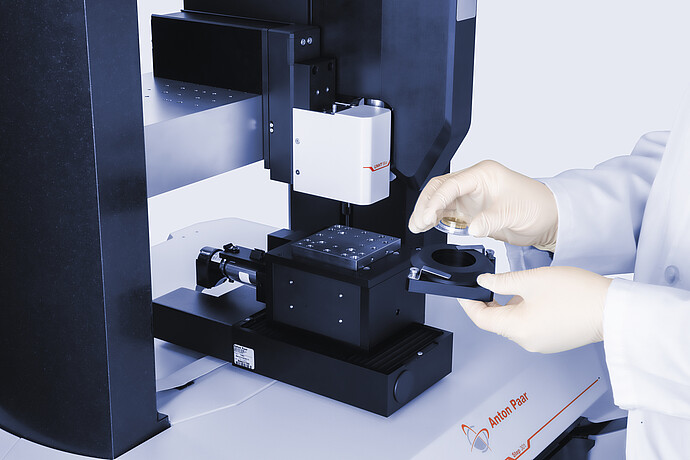
Anton Paar Bioindenter: Dedicated to your research
Investigations with the Anton Paar Bioindenter result in valuable conclusions on the mechanical behavior of very soft biological materials. This can be especially important when it comes to gaining a better understanding of the human body, e.g. for improving diagnosis, developing new drugs, engineering tissues and much more. For these aspects, the Bioindenter is equipped with special features for the testing of biomaterials, such as the ability to perform controlled force versus depth measurements. Furthermore, the Bioindenter provides surface detection via change in contact stiffness and measurement protocols especially adapted to biological materials.
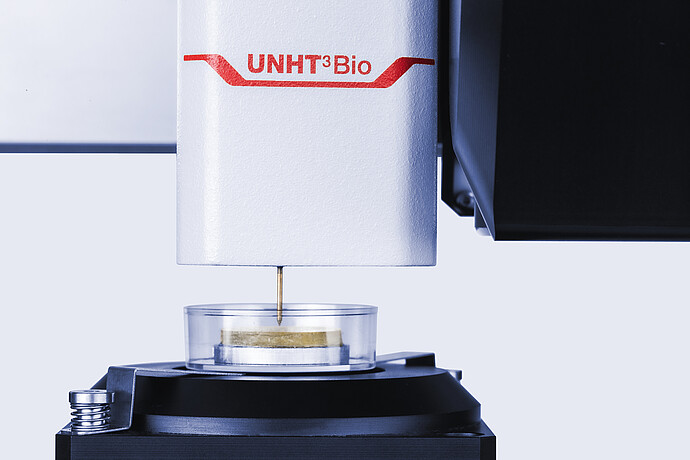
The indentation procedure: Optimized for your measurements
The Anton Paar Bioindenter offers a wide choice of indentation procedures including quasi-static, dynamic and user defined indentation modes. On the top of the standard analysis models, it includes Hertz model and automatic pull-off adhesion analysis. The convenient contact point determination makes the Bioindenter an instrument you will enjoy working with.
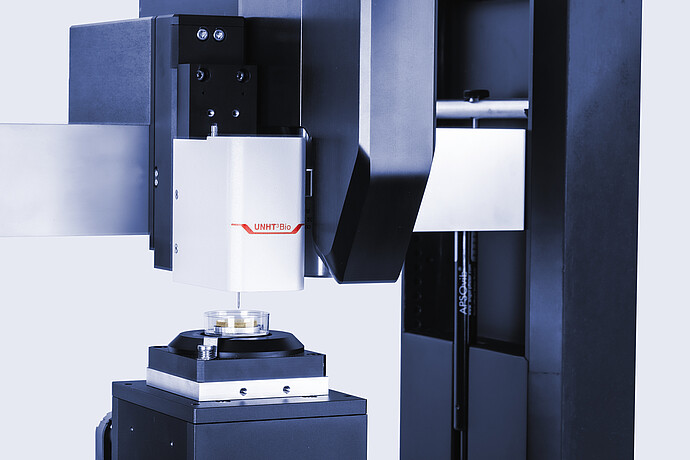
The measurement system: A class of its own
The measurement unit of the instrument itself is designed for high-precision nanoindentation in biology and medicine. The integrated true force sensor is able to apply a maximum load of up to 20 mN. The displacement sensor allows a large travel range. Furthermore, the Anton Paar Bioindenter provides good thermal stability to study creep and flow properties. The provided microscope comes with long working distance objective. The motorized precision table enables movements in the X,Y and Z directions for the ideal positioning of the sample.
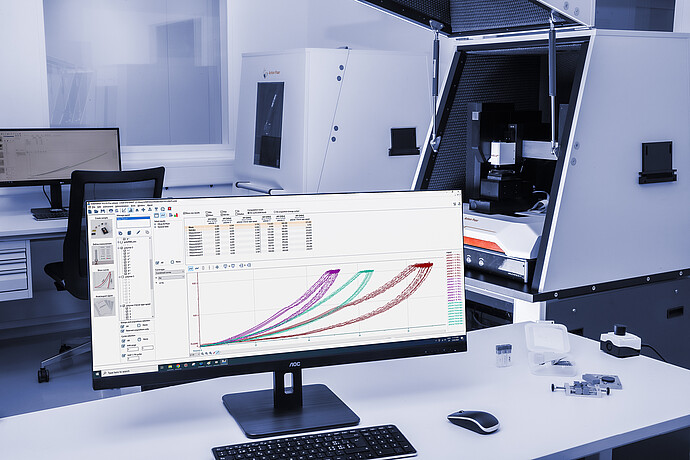
Software: The key to your results
With the powerful but easy to handle software, you have full control of the indentation procedures (load, displacement, etc.). The results are automatically analyzed and a statistical module for fast overview of your the data and results is also provided. User-defined ASCII exports can be made and multiple users can work with the instruments with controlled access rights. The elastic modulus can also be calculated from the loading part of the indentation curve using the Hertz’s model, which is more appropriate for biological materials than the commonly used Oliver & Pharr approach.
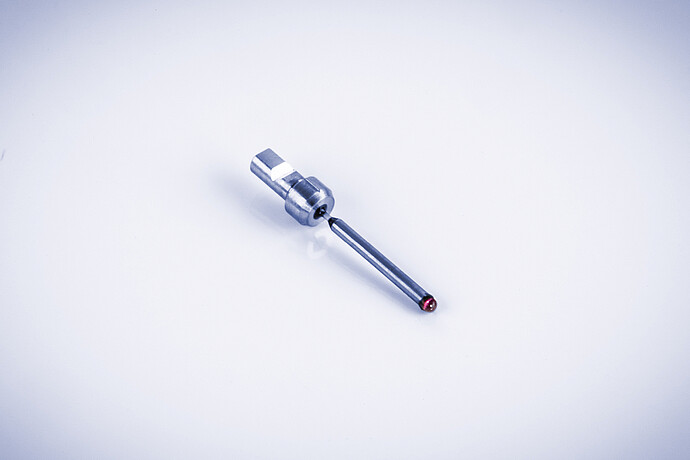
Different kinds of indenters: The choice is yours
The Anton Paar Bioindenter works with different kinds of indenters depending on your materials and needs. There are spherical indenters with radii from 0.01 mm up to 0.5 mm and larger, flat-punch (flat-ended cylinder) indenters, Berkovich indenters, Vickers indenters, cube-corner indenters, and also custom-made indenters to suit even the most demanding applications (large radii spheres, cylinders, etc.).
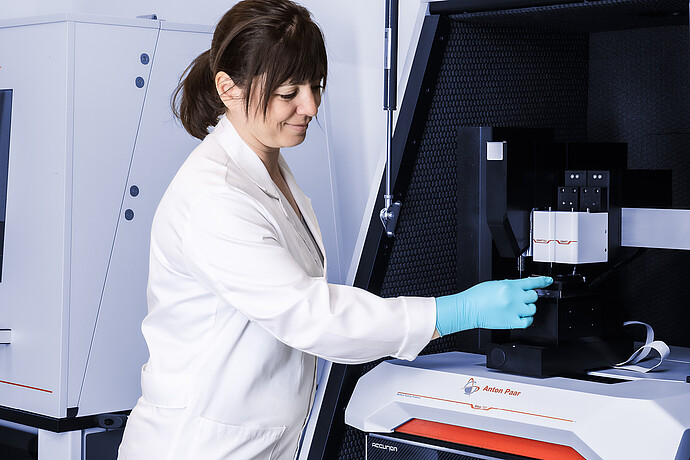
The versatile Step platform concept
Select the suitable solution from our platform portfolio based on the test parameters and expected sensitivity. Step platforms offer solutions for single applications used in dedicated laboratories as well as shared instruments across multiple departments. Their modularity enables high-sensitivity indentation testing on biomaterials, along with characterization of hard polymer samples and scratch testing – all on a single platform.
Technical specifications
| Force | |
|---|---|
| Max. force | 20 mN |
| Resolution | down to 0.001 µN |
| Noise floor | 0.1 [rms] [μN]* |
| Depth | |
| Max. depth | 100 μm |
| Resolution | down to 0.006 nm |
| Noise floor | 0.25 [rms] [nm]* |
*Noise floor value specified under ideal laboratory conditions and using an anti-vibration table.
Standards
ASTM
Anton Paar Certified Service
- More than 350 manufacturer-certified technical experts worldwide
- Qualified support in your local language
- Protection for your investment throughout its lifecycle
- 3-year warranty
Documents
-
Applications of Bioindenter in biology and medicine Application Reports
-
Applications of indentation in polymer industry Application Reports
-
Applications of nanoindentation in biology and medicine Application Reports
-
Compression of microparticles by cylindrical flat punch using a nanoindenter Application Reports
-
Dynamic mechanical analysis by nanoindentation Application Reports
-
Measurement of adhesive properties by nanoindentation Application Reports
-
Mechanical surface characterization of smartphone displays Application Reports
-
Spherical nanoindentation of polyacrylamide hydrogels by the Bioindenter Application Reports
-
Stress-strain and elastic-plastic properties by spherical indentation Application Reports
-
Tribological behavior of soft contact lenses Application Reports
Similar products
Accessories
Accessories
Accessories
Accessories
If you do not find the item you require, please contact your Anton Paar sales representative.
To find out if you can purchase online from your location, check the online availability below.
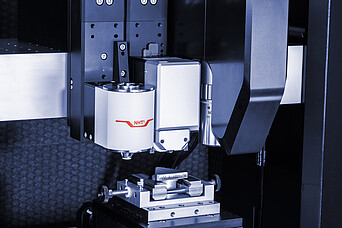
Accessory for Step Platforms:
Atomic Force Microscope (AFM)
- Versatile AFM solution for various scientific and industrial applications
- Imaging and analysis capabilities offering nanoscale surface information
- Non-destructive interaction with samples
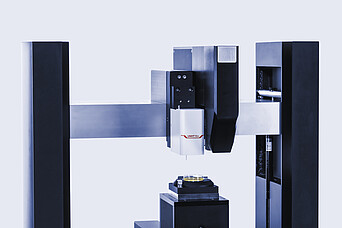
Accessory for Step Platforms:
Heating module
- Excellent thermal stability with testing temperatures up to 450 °C
- Correlation of surface mechanical properties with temperature
- Installation directly on the Step platform
